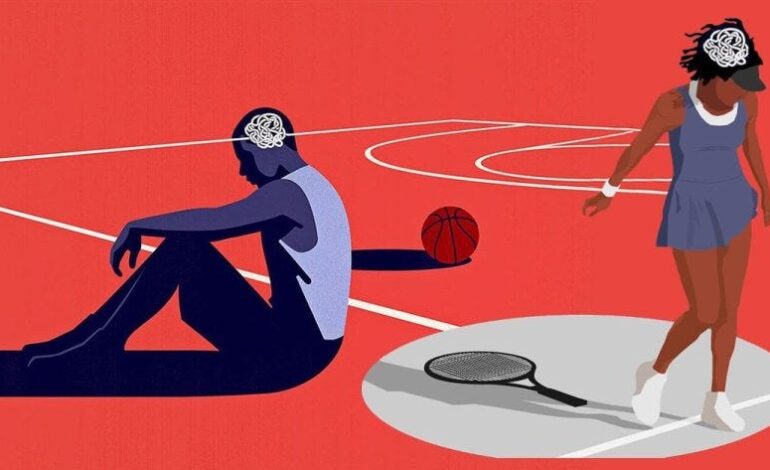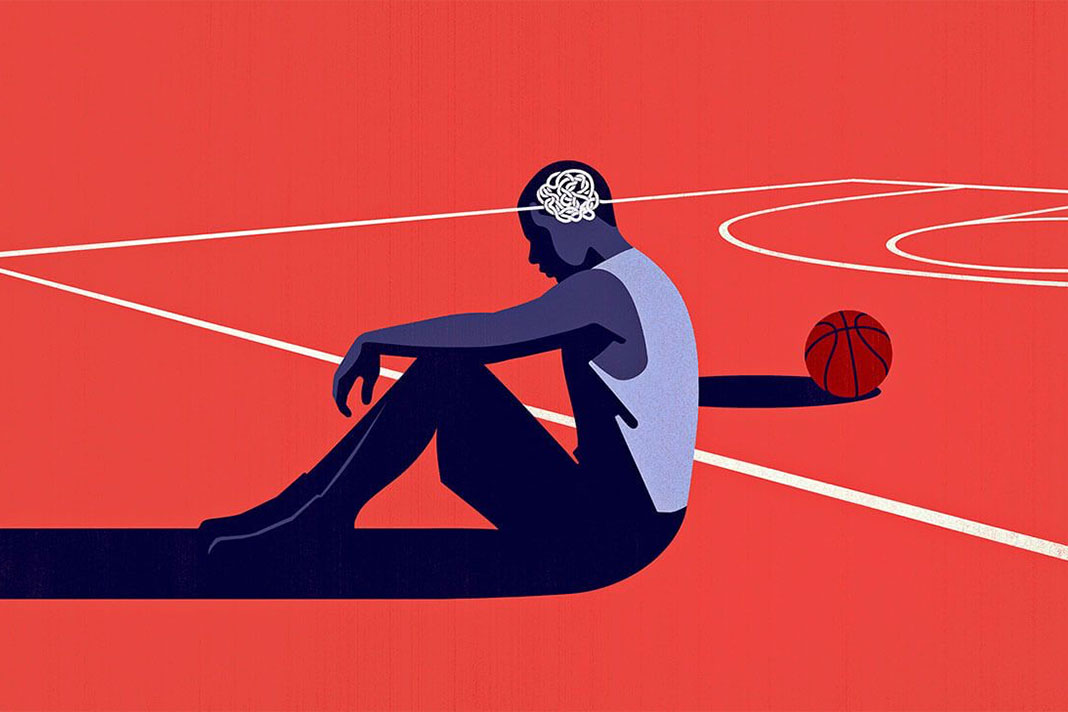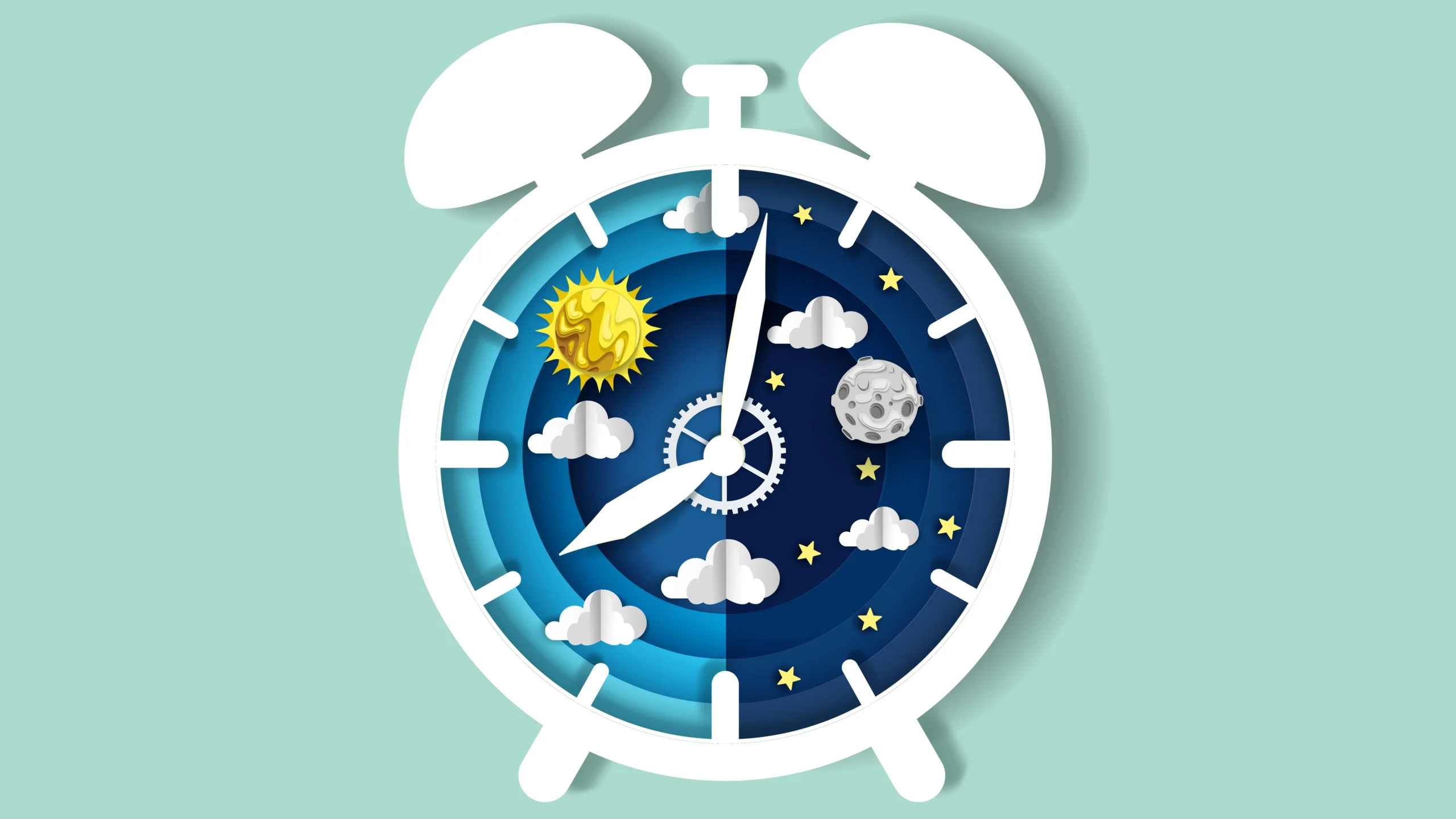Mental Health & Elite Athletes

“`html
The Silent Struggle: Mental Health in Professional Sports
Professional sports are often portrayed as a realm of peak physical performance, unwavering determination, and ultimate triumph. We see the dazzling displays of athleticism, the roaring crowds, and the celebratory victories. What we rarely see, however, is the immense pressure that comes with operating at such an elite level – and the toll it can take on athletes’ mental health.
For years, mental health concerns were often stigmatized within the sports world, viewed as a sign of weakness or a lack of resilience. Athletes were expected to “tough it out,” to push through pain (both physical and emotional), and to maintain an image of strength and invincibility. This culture of silence has had devastating consequences.
The Unique Pressures Faced by Professional Athletes
It’s easy to assume that being a professional athlete is all glamour and glory, but the reality is far more complex. Here’s a breakdown of some key pressures:
- Intense Scrutiny: Every move, every performance, every interaction is analyzed and judged by fans, media, coaches, and teammates. Social media amplifies this scrutiny exponentially.
- Performance Pressure: Athletes are constantly under pressure to perform at their best – consistently. One slip-up can lead to criticism, loss of playing time, or even contract issues.
- Physical Demands & Injury Risk: The physical toll on the body is immense. Injuries are common and often require grueling rehabilitation processes. Returning from injury carries additional pressure to perform well immediately.
- Travel Schedules & Isolation: Constant travel disrupts routines, making it difficult to maintain healthy relationships or establish a sense of normalcy. The isolation that accompanies being away from home for extended periods can be incredibly challenging.
- Financial Stakes: While many athletes are financially secure, the pressure to perform well enough to secure lucrative contracts and endorsements is ever-present.
- Short Career Spans: The peak of an athlete’s career is often relatively short – a few years at most. This knowledge can create anxiety about future prospects and financial stability after retirement.
Common Mental Health Challenges in Professional Sports
These pressures frequently manifest as serious mental health challenges. Here are some common issues:
- Anxiety: Performance anxiety is prevalent, but athletes can also experience generalized anxiety related to their career, finances, and public image.
- Depression: The combination of intense pressure, injuries, isolation, and the uncertainty of a short career can significantly increase the risk of depression.
- Burnout: Pushing oneself relentlessly without adequate rest or support can lead to burnout, characterized by exhaustion, cynicism, and reduced performance.
- Eating Disorders: Pressure to maintain a certain physique or meet weight requirements can contribute to disordered eating patterns.
- Substance Abuse: Athletes may turn to substances as a coping mechanism for stress, anxiety, or depression.
- Trauma & PTSD: Injuries, particularly severe ones, and experiences of harassment or abuse can lead to trauma and post-traumatic stress disorder (PTSD).
The Changing Landscape: Breaking the Stigma
Thankfully, there’s a growing awareness of mental health issues in professional sports. The stigma is slowly eroding, thanks to several factors:

- High-Profile Athletes Speaking Out: Several athletes have bravely shared their own struggles with mental health, helping to normalize the conversation and encourage others to seek help. Examples include Simone Biles (gymnastics), Michael Phelps (swimming), Kevin Love (basketball), and many more.
- Increased Media Coverage: While some coverage can be sensationalized, increased media attention on mental health in sports is raising awareness among fans and the general public.
- Teams & Leagues Providing Resources: More professional sports teams and leagues are now offering resources like therapists, counselors, and mental wellness programs for their athletes. This is a crucial step towards providing real support.
- Emphasis on Holistic Athlete Development: A shift in perspective is occurring that recognizes the importance of an athlete’s overall well-being – not just their physical abilities.
What Can Be Done to Support Athletes’ Mental Health?
Creating a truly supportive environment for athletes requires a multi-faceted approach:
- Early Identification & Prevention: Screening athletes for mental health concerns should be routine, just like physical examinations.
- Accessible Mental Health Services: Teams and leagues need to provide readily available access to qualified mental health professionals who understand the unique challenges faced by athletes.
- Cultivating a Culture of Openness: Coaches and team leaders must actively promote a culture where athletes feel comfortable discussing their struggles without fear of judgment or repercussions. This starts with leading by example – demonstrating vulnerability themselves.
- Education & Training: Educating coaches, trainers, and support staff on recognizing signs of mental distress is vital to early intervention.
- Promoting Healthy Coping Mechanisms: Encouraging athletes to develop healthy coping strategies, such as mindfulness, meditation, or spending time with loved ones, can help them manage stress and build resilience.
- Addressing the Root Causes: Examining and addressing systemic issues within sports culture – like unrealistic expectations, excessive training schedules, and a win-at-all-costs mentality – is essential for long-term change.
The Future of Mental Health Support in Sports
While progress has been made, there’s still much work to be done. The future of mental health support in professional sports hinges on continued advocacy, increased investment in resources, and a fundamental shift in culture. We need to move beyond simply acknowledging the issue and actively create an environment where athletes feel empowered to prioritize their mental well-being – without compromising their careers.
Ultimately, supporting athletes’ mental health isn’t just about doing what’s right; it’s about recognizing that healthy minds lead to sustainable performance. A truly successful athlete is one who thrives both on and off the field/court/ice.
“`



